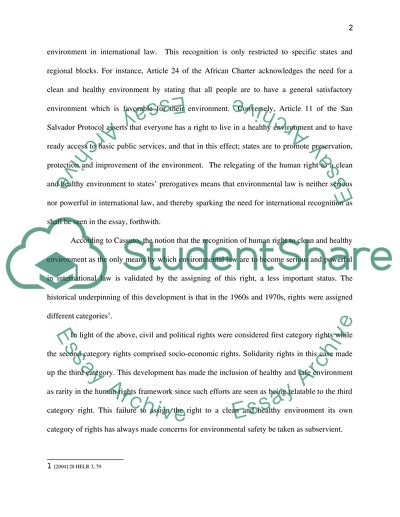Cite this document
(“Recognition of a Human Right to a Clean and Healthy Environment Essay”, n.d.)
Retrieved from https://studentshare.org/law/1465900-recognition-of-a-human-right-to-a-clean-and-healthy-environment
Retrieved from https://studentshare.org/law/1465900-recognition-of-a-human-right-to-a-clean-and-healthy-environment
(Recognition of a Human Right to a Clean and Healthy Environment Essay)
https://studentshare.org/law/1465900-recognition-of-a-human-right-to-a-clean-and-healthy-environment.
https://studentshare.org/law/1465900-recognition-of-a-human-right-to-a-clean-and-healthy-environment.
“Recognition of a Human Right to a Clean and Healthy Environment Essay”, n.d. https://studentshare.org/law/1465900-recognition-of-a-human-right-to-a-clean-and-healthy-environment.


